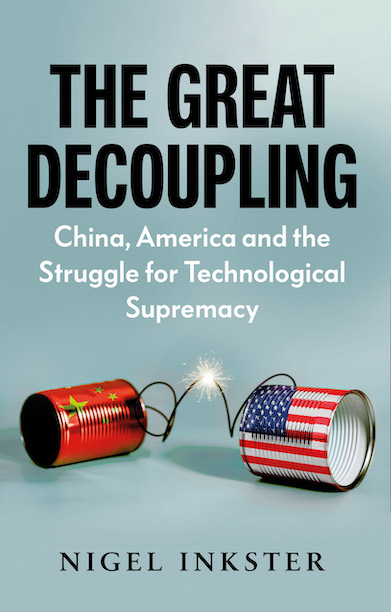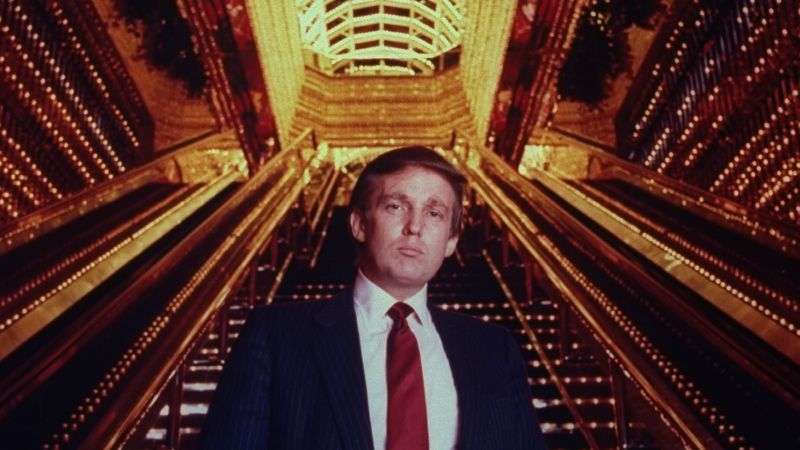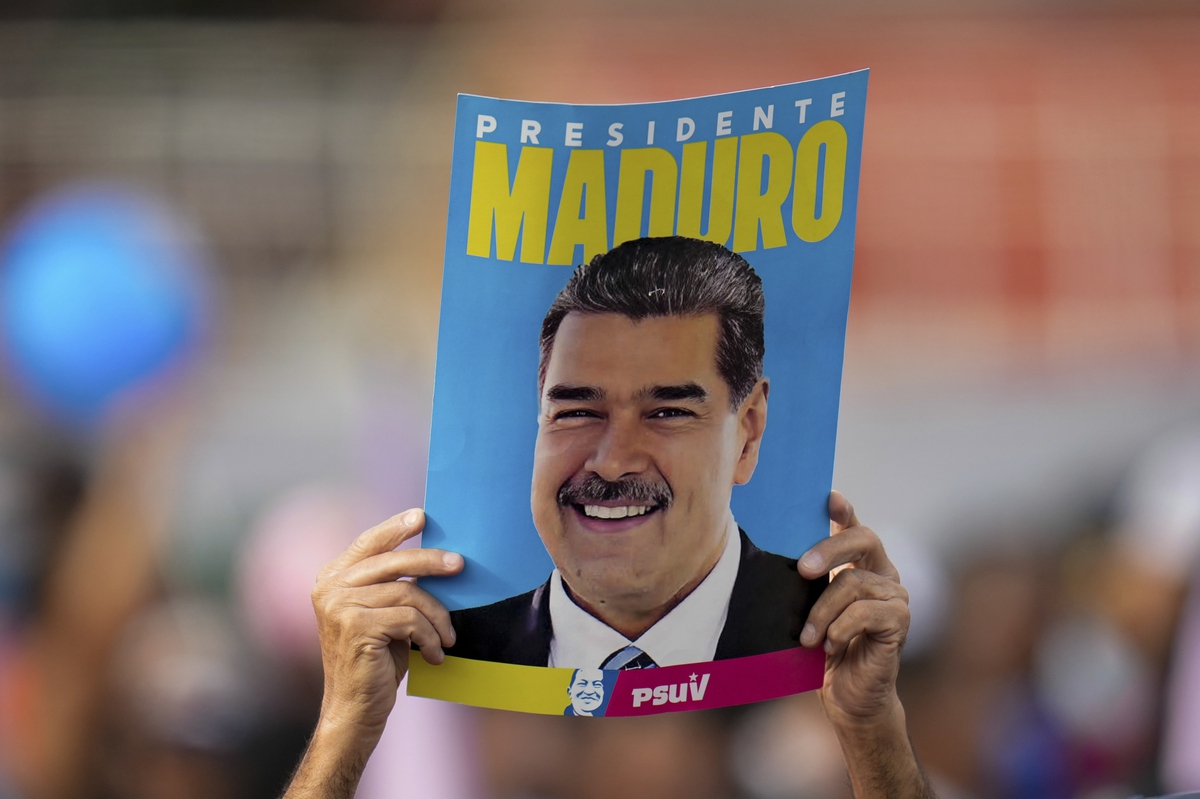Is The Great Decoupling Inevitable? A Critical Analysis

Table of Contents
The term "Great Decoupling" refers to the unraveling of the deeply intertwined economic relationship between the US and China. This involves significant reductions in bilateral trade, investment, and technological collaboration, driven by increasing geopolitical risk and concerns over economic security. Key aspects of this decoupling process include supply chain diversification, aiming to reduce reliance on a single nation, and a heightened focus on technological rivalry, especially in sensitive sectors like semiconductors and artificial intelligence.
This article aims to critically analyze the arguments for and against the inevitability of a Great Decoupling, exploring the complex interplay of geopolitical factors, economic interdependence, and international cooperation that will shape the future of the US-China relationship.
Arguments for the Inevitability of the Great Decoupling
Geopolitical Tensions and Trust Erosion
The fundamental bedrock of a strong economic relationship is trust. However, increasing political and ideological differences between the US and China have severely eroded this trust. The ongoing trade war, punctuated by tariffs and sanctions, exemplifies this breakdown. Furthermore, the emerging "technological cold war," characterized by restrictions on technology transfer and the pursuit of technological dominance, fuels a climate of suspicion and competition. This geopolitical fragmentation makes sustained, mutually beneficial economic cooperation increasingly challenging.
- Examples of specific incidents fueling distrust:
- The imposition of tariffs on hundreds of billions of dollars worth of goods.
- Restrictions on Chinese companies' access to US technology and markets.
- Increased scrutiny of Chinese investments in the US.
- Heightened rhetoric and accusations of intellectual property theft.
Supply Chain Vulnerabilities and Diversification
Over-reliance on a single country for essential goods and services creates significant supply chain vulnerabilities. The COVID-19 pandemic starkly highlighted these risks, prompting a global push for supply chain diversification. "Reshoring," the repatriation of manufacturing to the home country, and "nearshoring," the relocation of production to nearby countries, are gaining momentum. Governments are actively implementing policies and providing incentives to encourage these shifts, aiming for enhanced supply chain resilience and risk mitigation.
- Examples of companies diversifying their supply chains:
- Apple shifting some production away from China.
- Automotive manufacturers establishing production facilities in Southeast Asia and Mexico.
- Pharmaceutical companies diversifying their sources of active pharmaceutical ingredients.
Technological Competition and National Security Concerns
The US and China are locked in a fierce competition across key technological sectors. Control over semiconductors, artificial intelligence, and 5G technology is seen as crucial for national security and economic dominance. This rivalry has led to export controls, investment restrictions, and initiatives aimed at technological decoupling. The aim is to limit the transfer of sensitive technologies and reduce dependence on potentially adversarial nations.
- Examples of specific technological restrictions imposed by each country:
- US restrictions on the sale of advanced semiconductor manufacturing equipment to China.
- Chinese restrictions on access to its domestic technology markets for foreign companies.
- Increased scrutiny of foreign investments in key technological sectors.
Arguments Against the Inevitability of the Great Decoupling
Economic Interdependence and Mutual Gains from Trade
Despite rising tensions, the US and China remain deeply economically interdependent. Bilateral trade and foreign direct investment (FDI) flows remain substantial, highlighting the mutual gains derived from this economic relationship. A complete decoupling would impose significant economic losses on both countries, potentially disrupting global supply chains and hindering economic growth.
- Data illustrating the volume of trade and investment between the two countries: (Insert relevant statistical data here from reputable sources like the World Bank or WTO)
The Role of International Cooperation and Global Institutions
The potential for international cooperation to manage disputes and mitigate tensions cannot be overlooked. The World Trade Organization (WTO) and other global institutions play a crucial role in regulating global trade and establishing international norms. Efforts to develop new global standards and strengthen multilateralism could help to alleviate concerns and facilitate cooperation.
- Examples of international efforts to promote cooperation: (Include examples of collaborative initiatives between countries or international organizations)
Gradual Adjustment and Strategic Partnerships
A complete, abrupt decoupling may be unrealistic. Instead, a more gradual and selective approach is plausible. This could involve a phased reduction in interdependence in certain sensitive sectors while maintaining broader economic ties. The formation of strategic partnerships and alliances outside the US-China framework also offers alternative pathways for economic cooperation and diversification.
- Examples of countries forming new economic partnerships: (Provide examples of regional trade agreements or economic alliances)
Conclusion: Is Complete Decoupling Inevitable? A Final Assessment
The arguments presented highlight the complex and multifaceted nature of the potential Great Decoupling. While significant geopolitical tensions and concerns over national security provide strong arguments for at least partial decoupling, the substantial economic interdependence and the potential for international cooperation suggest that a complete and immediate break is unlikely. A more realistic scenario might involve a gradual and selective decoupling, focusing on critical technological sectors while maintaining broader economic ties. The ongoing evolution of US-China relations, influenced by strategic competition and economic interdependence, will determine the ultimate trajectory.
Understanding the complexities of the Great Decoupling is crucial. Continue your research and join the conversation on how to navigate this defining moment in global economics. Informed dialogue is essential to manage the risks and opportunities presented by this evolving geopolitical landscape and shape a future where economic cooperation and competition can coexist.

Featured Posts
-
 Andor Season 2 Release Date A Recap Of Season 1 And What To Expect
May 08, 2025
Andor Season 2 Release Date A Recap Of Season 1 And What To Expect
May 08, 2025 -
 Trump Described As Transformational President By Carney In D C
May 08, 2025
Trump Described As Transformational President By Carney In D C
May 08, 2025 -
 Dossier On Papal Candidates Cardinals Face Crucial Choice
May 08, 2025
Dossier On Papal Candidates Cardinals Face Crucial Choice
May 08, 2025 -
 Abc Game Promo Tnt Announcers Funny Take On Jayson Tatum
May 08, 2025
Abc Game Promo Tnt Announcers Funny Take On Jayson Tatum
May 08, 2025 -
 Jayson Tatum Seemingly Confirms Sons Birth With Ella Mai In New Ad
May 08, 2025
Jayson Tatum Seemingly Confirms Sons Birth With Ella Mai In New Ad
May 08, 2025
Latest Posts
-
 Hernandez Dirigira Al Flamengo El Nuevo Proyecto Del Club Carioca
May 08, 2025
Hernandez Dirigira Al Flamengo El Nuevo Proyecto Del Club Carioca
May 08, 2025 -
 Uber Auto Service A Cash Only Transition
May 08, 2025
Uber Auto Service A Cash Only Transition
May 08, 2025 -
 Uber One Kenya Discounts And Free Deliveries Now Available
May 08, 2025
Uber One Kenya Discounts And Free Deliveries Now Available
May 08, 2025 -
 Flamengo Anuncia A Sergio Hernandez Como Su Nuevo Entrenador
May 08, 2025
Flamengo Anuncia A Sergio Hernandez Como Su Nuevo Entrenador
May 08, 2025 -
 Cash Only Ubers New Auto Service Payment Policy
May 08, 2025
Cash Only Ubers New Auto Service Payment Policy
May 08, 2025
